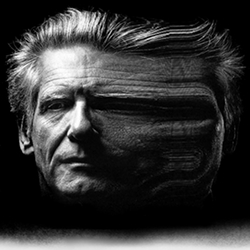
An Ode to the Apocalyptic…

Editor’s Notes: White House Down is now available on Blu-ray and DVD.
It must be incredibly frustrating to want to constantly destroy the planet, only to have the world change all around you. Roland Emmerich has spent a large part of his directing career attempting to create the definitive onscreen apocalypse, yet every time he does it the anxieties of his audiences slightly change around him and he has to change tactics.
It all began in the hazy pre-9/11 days of 1996. The X-Files was at the height of its popularity; the biggest sci-fi films of the previous year were all dystopian cyber/steampunks like Judge Dredd, Johnny Mnemonic, Tank Girl, 12 Monkeys and Waterworld; the government was in disarray over perceived inefficiency during shutdowns and an FBI scandal known as Filegate – the time was right for a conspiracy film of epic proportions.
 Independence Day tells the multi-stranded story of a handful of Americans (a future Emmerich trademark) having to come to terms with a global alien invasion. The crucial sequence that helps define one of the main characters, the American President (Bill Pullman), is a scene where he is told that the reason he did not know about Area 51 and classified governmental alien research is so that he had “plausible deniability” on the issue. This allows the President to retain the moral high ground and give a famous rallying speech before joining the troops in fighting the alien invaders. The morality of the film highlights the well-intentioned senior politicians versus the shady bureaucratic intelligence agencies.
Independence Day tells the multi-stranded story of a handful of Americans (a future Emmerich trademark) having to come to terms with a global alien invasion. The crucial sequence that helps define one of the main characters, the American President (Bill Pullman), is a scene where he is told that the reason he did not know about Area 51 and classified governmental alien research is so that he had “plausible deniability” on the issue. This allows the President to retain the moral high ground and give a famous rallying speech before joining the troops in fighting the alien invaders. The morality of the film highlights the well-intentioned senior politicians versus the shady bureaucratic intelligence agencies.
The audience happily absorbs this theme as they simultaneously relax and watch some of the major landmarks of the (Western) world blown up in unison by the aliens. The message of the film then could be read as: the institutions of American political and cultural life can be purged of corrupt bureaucrats as long as patriots survive in order to rebuild. Emmerich, the patriot, must have been happy with the positive response to the film…
Then, riding of the back of this success, Emmerich decided to remake the Japanese classic Godzilla for an American audience. Although a critical and financial flop at the time (1998), the film was one of the final big scale disaster films before 9/11. After destroying the world, it appears that Emmerich wanted to hone in on Manhattan as an appropriate place to destroy through a foreign disaster – a Japanese monster that had evolved through nuclear radiation. The message of this film is that previous foreign policy and geopolitical will eventually come back to haunt/destroy America – a horribly prescient message.
Then, of course, everything changed. After the devastation seen in the highly visible destruction of the Twin Towers, audiences needed a break from epic destruction and needed to return to narratives about strangers coming together to help each other, and families forced to reassert their unity in this face of adversity. Hence we get The Day After Tomorrow. Emmerich clearly didn’t want to tell a modern family story that didn’t involve eschatology, so he modified the menace to become more abstract and all threatening – the weather.
There is a double meaning within the phrase “Climate Change” that is rarely picked up upon: it obviously refers to changes in weather climates and ecosystems, yet it also can refer to a change in the cultural and political climate. All the evangelical activists that deny scientific climate change often ironically talk about the changes in public mood in support of their side of the issue – a cultural climate change. I’m sure that Roland Emmerich understands this. The metaphor in TDAT is that due to the shift in political thinking in the country, the greater threat is the coming “climate change” from public opinion and fear – an anxiety that causes families to become more conservative and insular, and one that cannot be contained by military force. The fact that the main characters are scientists and quiz champions that hide in a library during the storm is a key indicator that Brains are better than Brawn against the existential threat that America faces.
It is this ability for Emmerich’s films to appeal to both sides of American politics that make him so successful (or risible).
Then after a couple of years of military quagmire in the Middle East, aligned with an ancient mythology about the Mayan calendar coming to an end, Emmerich decides to release 2012, arguably his most ideologically controversial film. John Cusack stars as Jackson, a failed writer, who has to protect his (broken) family from environmental disaster (solar flares AND super-volcanoes). Along the way he meets Charlie (Woody Harrelson), a paranoid conspiracy theorist who plagues the airwaves with UFOlogy and New World Order information. Charlie is obviously represented as a fringe lunatic at the beginning before becoming the enlightened sage as the apocalypse begins.
The film culminates in the secret construction of Arks that protect the global elites (including Russian oligarchs and the British Queen) from a worldwide flood, before finally releasing them onto the shores of Africa as the new world begins. No Africans are seen or heard from throughout the film; they are simply wiped out so that the Western survivors can rebuild on their land.
At first this seems like a deluded right-wing utopia where the rich and the powerful (and John Cusack) can eliminate the proletariat of the world before constructing a paradise in the motherland of Africa (but without the Africans) – this is the reading that I had of this film for a long time… Yet, when I started to think about Emmerich’s back-catalogue, it occurred to me that perhaps this was all wrong. This was his first film of the Obama administration, a time when America began to think of itself (wrongly) as post-racial.
 In terms of racial politics (baring in mind that the African-American President also has to sacrifice himself so that the others may live…), the film could be one enormous allegory exploring the fears of White America in the face of growing ethnic diversity. How else could he explain why he killed off all of the characters that weren’t middle class White Americans?
In terms of racial politics (baring in mind that the African-American President also has to sacrifice himself so that the others may live…), the film could be one enormous allegory exploring the fears of White America in the face of growing ethnic diversity. How else could he explain why he killed off all of the characters that weren’t middle class White Americans?
Or maybe he wrong-footed this film…
The most recent disaster film is the much more located White House Down. After Americans began to confront the end of their military action overseas, the threat returns to specific symbolic buildings, as seen in Independence Day.
Set on one morning in the capital, a group of homegrown terrorists take over the White House and attempt to take the President (Jamie Foxx) hostage in order to get revenge for foreign policy blunders abroad. I have written a more detailed review of the politics in that film here, but essentially it is possible to see it as a Liberal narrative depicting an anti-war president getting attacked for reducing the “military industrial complex” abroad; or as a conservative fantasy of ordinary citizens rising up to defend America from governmental corruption. It is this ability for his films to appeal to both sides of American politics that make him so successful (or risible).
Every time Roland Emmerich tries to blow up the world, the American public changes its mind over what freaks them out… But with Independence Day 2 and 3 in the pipeline, Emmerich clearly thinks that it is a time to return to pre-war, pre-9/11 alien films.
Related Posts
Ollie England
Latest posts by Ollie England (see all)
- An Ode to the Apocalyptic… - November 6, 2013





























